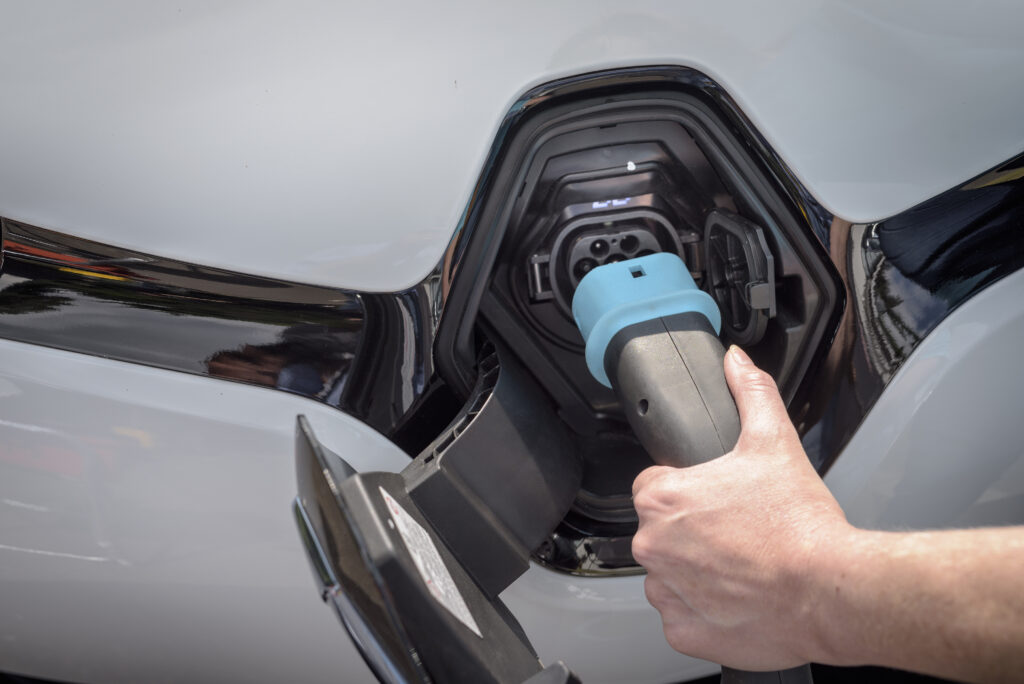Figures released by the RAC Foundation has disclosed that the number of pure battery-electric vehicles (BEVs) has exceeded half-a-million to reach 519,266 at the end of June 2022.
The rise in BEVs on the UK’s roads continue to grow significantly as the nation races towards the internal combustion engine (ICE) ban that will come into play from 2030. Because of this, many UK drivers have been exploring the possibility of adopting electric vehicles (EVs).
This can also be recognised with licensed BEVs one year earlier standing at 282,977 and 130,246 at the end of June 2020, stated the RAC who analysed data released by the Driver and Vehicle Licensing Agency (DVLA).
Although there are many factors as to why BEV adoption has surged in recent years, one striking correlation is the rise in EV charging infrastructure across the UK, providing drivers with plentiful areas to recharge on the road.
“This is a very significant milestone in terms of getting more battery-powered cars onto our roads, but we still have a long way to travel before we achieve a truly green fleet given that there are around 33 million cars in Britain,” said Steve Gooding, director of the RAC Foundation.
The RAC revealed that The Tesla Model 3 is the most popular BEV with 75,188 on the road, followed by the Nissan Leaf (47,646) and Kia Nero (26,095). The most popular plug-in hybrid is the Mitsubishi Outlander (49,231).
Despite the positive growth throughout the majority of 2022, the energy crisis has had a large impact which could have unforeseen consequences for the remaining months of 2022 and in 2023. The number of registrations during the first three months of the year was 102% more than during the same period in 2021. At the end of August, the year-to-date increase had fallen to 49%.
A culmination of factors have resulted in decreased attractivity of EVs amid the energy crisis. Perhaps the most damning of revelations had been released by the AA who stated three in five drivers have been put off buying an EV as a result of rising domestic energy prices.
A survey conducted by the AA revealed 63% of drivers now state that rising energy costs has put them off making the switch to EVs. The poll of 12,500 drivers also found that 10% say the hike in home energy bills is the main reason for sticking with a petrol or diesel car.
Alongside this, the costs associated with charging an EV have risen as a result of the energy crisis. The increase in the wholesale electricity prices recently led Osprey Charging to increase the price of its rapid EV charging network to £1/kWh amid the “extraordinary circumstances”. This increased from 40p/kWh from August 2021.
Data released by RAC Charge Watch indicated that the costs of charging an EV at a public charger has increased by 42% from 18.75p/kWh in May to an average of 63.29p/kWh.
To mitigate these issues slowing down the adoption of EVs, the Department for Transport said it wanted to “refocus” funding to encourage users of other vehicles to make the switch to electric.
“In recent months the total take-up of vehicles running solely on electricity can best be described as steady rather than stellar, with shortages of supply hampering the ability of much of the auto industry to get vehicles from their order books and into drivers’ hands,” said Gooding.
“It also appears that many people are hanging on to their existing car for a bit longer because of the cost-of-living crisis. Knowing how many electric vehicles are available for use is important, but what matters most is whether those vehicles are actually catering for the trips that would otherwise be fossil-fuelled.”
Current±’s publisher Solar Media is running the EV World Congress on 5 and 6 October at the Leonardo Royal Hotel Tower Bridge. To find out more and get your ticket, see here.





